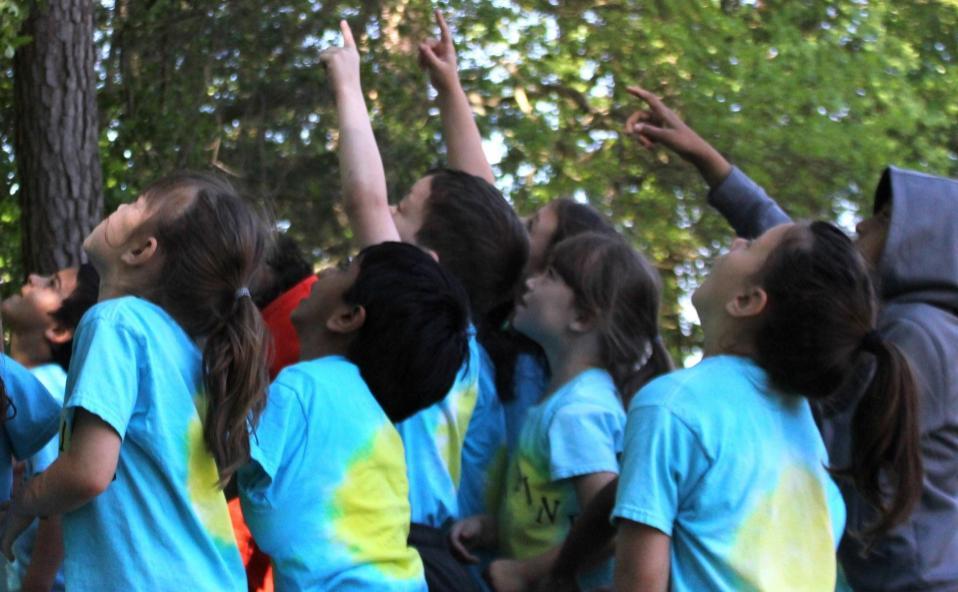This year Waterfowl Chesapeake has chosen two conservation education programs on Delmarva as the focus of its 2018 Community in Conservation Match Campaign. “We are excited to offer a dollar for dollar match, up to $5,000, for two great ways to connect students with waterfowl issues,” says Executive Director Margaret Enloe. “We raised just over $1200 during Festival weekend through the generous support of artists and Festival guests. If we reach our goal by December 31, our community will help fully fund University of Delaware’s (UD) experiences for grad students and the Ward Museum’s program for Talbot County kindergarteners.”
UD’s field program “Promoting Waterfowl Hunter Education for New Adult Students” is aimed at better connecting today’s graduate students with tomorrow’s careers in Waterfowl Ecology. Many graduate students studying in this field have never had the experience of hunting. Yet these young adults are likely to become the future leaders in environmental resource management, with positions in academia, state agencies or federal service – all of whom must work with landowners and the hunting community. How can they communicate with the hunters and landowners if they have never had the experienced the sport? The program includes certification, education on waterfowl identification, policy, habitat management, value structures associated with hunting, hunting dog training, and cooking wild game. The program ends with a voluntary opportunity to engage in a one-on-one mentored waterfowl hunting experience. Overall, the experience is designed to help them be the best leaders in conservation they can be.
 The Ward Museum’s program will offer classroom visits and field trips for Talbot County kindergarten students to experience the Ward Museum of Wildfowl Art. While this opportunity is already successful in several other Shore counties, it will be a new program for students here. The curriculum supports MD State Department of Education’s Environmental Literacy Standards. It also meets the Meaningful Watershed Educational Experience (MWEE) requirement for kindergarteners, which ensures that school children have hands-on, action-based learning experience that engage core concepts of watershed health and environmental impacts. And what better way for local children to understand the natural world than through lessons about our waterfowl!?
The Ward Museum’s program will offer classroom visits and field trips for Talbot County kindergarten students to experience the Ward Museum of Wildfowl Art. While this opportunity is already successful in several other Shore counties, it will be a new program for students here. The curriculum supports MD State Department of Education’s Environmental Literacy Standards. It also meets the Meaningful Watershed Educational Experience (MWEE) requirement for kindergarteners, which ensures that school children have hands-on, action-based learning experience that engage core concepts of watershed health and environmental impacts. And what better way for local children to understand the natural world than through lessons about our waterfowl!?
Waterfowl Chesapeake’s Community in Conservation Program includes using restricted proceeds from the Waterfowl Festival to offer non-profits and community entities the chance to receive monies for projects and initiatives at the intersection of conservation and community. “While we also support large restoration projects,” explains Enloe, “these small grants are a simple way for us to bring people and local conservation work together.”
Waterfowl Chesapeake hopes that the broad emphasis on “community” will encourage organizations to think creatively about who they can serve and will help generate new ideas to bring people and regional conservation work, research and education together on waterfowl-related issues. The matching campaign each year gives people a way to make a difference locally. “In the event that we exceed our match campaign goal, any additional funds are earmarked for next year’s worthy waterfowl projects.”
Find out more about the program or making a contribution at www.waterfowlchesapeake.org or by calling 410.822.4567.
About us: With a focus on communities, stewardship and the waterfowl-related resources and heritage on Delmarva, Waterfowl Chesapeake: Connects financial resources from the Festival and environmental needs in communities, Serves as a neutral convener for events, forums and discussions leading to solutions, and Engages and educates communities about the benefits of healthy waterfowl populations and habitats.



Write a Letter to the Editor on this Article
We encourage readers to offer their point of view on this article by submitting the following form. Editing is sometimes necessary and is done at the discretion of the editorial staff.